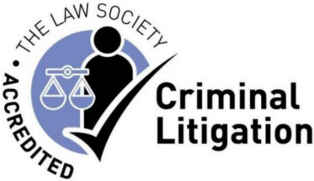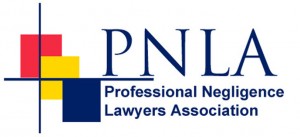Solicitors Specialising in the Creation and Administration of Irrevocable Trusts
Irrevocable trusts offer many advantages in managing and protecting assets. They are a secure way of providing for loved ones while helping to safeguard funds from issues such as bankruptcy and divorce. An expert irrevocable trust lawyer will be able to advise you of your options and set up a trust on your behalf, ensuring your assets are managed and passed on in the way that you want.
Thinking of setting up an irrevocable trust? Call our specialist Trusts lawyers on FREEPHONE 0800 1404544 or one of our local office numbers [see below] for FREE initial phone advice.
How our irrevocable trust solicitors can help you
Trusts are versatile legal instruments – and can play a critical part in estate planning. But as you will see from the information below, they are complex and you should be aware that remarkably few lawyers specialise in this area.
Here at Bonallack & Bishop, we have an exceptionally specialist Trust Solicitor. Elizabeth Webbe not only has extensive experience in educating other solicitors nationwide about trusts, but she is also a Full Member of STEP – the Society of Trust and Estate Practitioners, the global professional body, comprising trustees, accountants and lawyers advising on family wealth management and forward planning.
Our Private Client lawyers provides specialist advice to clients locally across Wiltshire, Hampshire, and Dorset and throughout England and Wales – in face-to-face meetings, or by phone, email or video call.
Why use an irrevocable trust?
Trusts offer protection for assets. For example, if you wish to pass on funds to someone not yet old enough or mature enough to manage them, putting money in a trust allows the trustees to look after it. The trustees give money to the individual, known as the beneficiary, when the trustees feel it is appropriate.
When setting up the trust, you can specify how you want the trust funds spent. This could be on education, day-to-day expenses or a larger item such as a car or towards a property.
A trust can also protect money from third parties. This can include divorce claims, bankruptcy, Inheritance Tax planning and, in some circumstances, care home fees.
What is an irrevocable trust?
An irrevocable trust cannot usually be changed or undone in the future. This means it is crucial to have advice from an expert irrevocable trust lawyer before setting up this type of trust.
However, there are some real advantages. Once funds are in the trust, they are generally beyond reach and not considered part of your assets or estate. This can offer a greater level of protection than a revocable trust.
If you are considering setting up an irrevocable trust, it is crucial to do it correctly and to appoint the right trustees. While it may be possible to change an irrevocable trust in some limited circumstances, this can be a complex process and could need the agreement of all beneficiaries or, alternatively, a court order.
What is the difference between an irevocable and a revocable trust?
-
Revocable trusts
A settlor sets up revocable trusts during their lifetime. If you set up a revocable trust, you can change or end it at any time, provided you have the mental capacity to understand the implications. If you choose an irrevocable trust, it is much harder to alter and it might not be possible.
If you choose to set up a revocable trust, it is simple to make changes, such as removing and appointing trustees and adding new beneficiaries. You can appoint yourself as a trustee, meaning you will control the trust funds along with any other trustees.
As you still have free access to trust assets and can draw on them or remove them from the trust if you wish, there is less protection for funds and property held within a revocable trust. For example, any assets in a revocable trust could form part of your estate in due course – and that means they are potentially subject to Inheritance Tax.
-
Irrevocable trusts
An irrevocable trust is set up during your lifetime or in the terms of your Will. Any trust set up in a Will is irrevocable. Because you have given up control of assets placed in an irrevocable trust, they have greater protection from third parties. Crucially, they are NOT considered part of your estate, so the assets in the trust are not taken into account when calculating Inheritance Tax. That can make an enormous difference to the value of your estate.
However, trusts do have other usual tax liabilities and you should take advice before setting one up to check that it is the most beneficial option for your situation.
What types of irrevocable trust are there?
There are many types of irrevocable trust available. An irrevocable trust lawyer will be able to ensure you have the right trust in place for your needs and those of the beneficiaries. However, example of the irrevocable trust include:
-
Bare trusts
A bare trust is a simple type of trust. The trustee or trustees hold one or more assets on behalf of the beneficiaries. The trustee must look after the trust fund and follow any rules set out by the person who established the trust.
This type of trust is particularly useful when a beneficiary is under 18. The beneficiary is entitled to any income from the trust. The trustee will pass on or reinvest the income following the trust rules.
Once the beneficiary reaches 18, the assets will pass to them. The disadvantage of this type of trust is that the beneficiary will receive the funds at this relatively young age, but with forward planning this can be managed, provided that you take advice before the beneficiary reaches 18 from an Irrevocable Trust lawyer.
The trustees have no power to alter the trust terms or deviate from the trust instructions.
-
Discretionary trusts
Discretionary trusts are often irrevocable. The individual setting up the trust will not usually have any power to change the terms of the trust or to end the trust.
The trustees have discretion in how they act. They can choose to which beneficiaries to pay income, when to do this and how much. They can also end the trust if they wish, for example, if the trust funds dwindle or the beneficiaries can manage their own money.
As beneficiaries are not guaranteed to be paid assets and income from a discretionary fund, the funds have some protection from assessment in divorce cases.
The capital in a discretionary trust will also generally be safe if a beneficiary became bankrupt.
-
Life interest trusts
Life interest trusts are often set up in Wills, meaning they are irrevocable. They are useful for giving someone the benefit of an asset for as long as they need it. For example, a husband could leave his wife a life interest in the husband’s share of a house. This would entitle the wife to live there for as long as she wanted, often until her death. The wife could move house and the arrangement could apply to the new house.
In this example, on the wife’s death, the husband’s share would pass to the beneficiaries named in his Will. This means that the wife cannot spend or lose the house sale proceeds and cannot leave it to anyone in her own Will. One big advantage in this scenario is that the local authority would not be able to take the value of the property in the trust into account in assessing the wife’s assets for care home purposes, if this were ever be needed.
Similarly, if the wife remarried, her new husband would not be able to inherit or be given the first husband’s share.
As you can probably imagine, this type of life interest is very helpful for protecting assets for the next generation.
Often referred to as a disabled person’s trust, trusts for vulnerable beneficiaries are usually irrev
-
Trusts for vulnerable beneficiaries
Often referred to as a disabled person’s trust, special needs trust, trusts for vulnerable beneficiaries are usually irrevocable. These kind of legal vehicles will hold and invest funds, providing income and capital for the vulnerable individual. The capital in the trust could come from parents or a damages payout if the person were in an accident or harmed by medical negligence.
This type of trust is usually discretionary. The trustees will decide when to pay out the capital and income. Funds could be used to buy a home for the beneficiary and to provide day-to-day living expenses, for example.
As well as keeping the lump sum safe, this type of trust can prevent someone from losing their benefits. If they receive means-tested benefits, they would usually lose these if given a large amount of money. A personal injury trust set up to safeguard compensation from an accident or medical negligence claim, in particular, is often used to ensure that entitlement to means tested benefits is not affected
Click here to find out more about how our Special Needs Trust Lawyers can help you and your loved ones
Who owns the property in an irrevocable trust?
The trustees are the legal owners of the money in an irrevocable trust. The trustees have a range of duties in dealing with the trust assets. They are also bound to follow the terms of the document setting up the trust. This could be a trust deed or a Will.
If the trust is discretionary, the trustees can decide how to distribute the trust funds. If the settlor has left a Letter of Wishes, the trustees should follow this guidance.
How do I choose trustees for an irrevocable trust?
Choosing the right trustees is crucial when creating a trust. As well as choosing people you trust implicitly, you need to ensure they have the time and the understanding to run a trust.
There may be tax liabilities to disclose and trustees will need to prepare trust accounts each year as beneficiaries have a right to see these. Trustees must also register the trust with HM Revenue & Customs.
Trustees also need to document major decisions, such as making payments and dealing with the management and investment of funds. They should actively manage investments usually using Investment advisors as they are legally obliged to look after the assets.
They can seek legal and other professional help in running the trust. This can help establish that they have discharged their duties to the trust and acted in the best interests of the beneficiaries.
Some families prefer to leave the running of trusts to professional trustees, particularly where the settlor set clause of the trust doesn’t feel they have the right individual to leave with the burden of the Trust’s long-term administration.
Here at Bonallack & Bishop we have plenty of experience in acting as professional trustees for beneficiaries with a range of vulnerabilities, as well as both for children under 18 and surviving spouses who live in the former matrimonial home for the remainder of their lives.
Click here to read more about appointing Professional Trustee Solicitors.
What are the advantages of an irrevocable trust?
The main advantage of putting money into a trust is protection for the beneficiaries.
This could be protection from unwise spending on the part of the beneficiary. Alternatively, it could be protection from third-party assessment in cases of divorce, bankruptcy or Inheritance Tax.
While putting funds into a trust is not always a guarantee that they are untouchable, it is often a strong layer of protection.
It is important to take specialist legal advice before putting funds into a trust, particularly if it is an irrevocable trust that you cannot easily undo.
An expert irrevocable trust lawyer will be able to advise you on a range of issues, including:
· What type of trust will be best for your circumstances
· What to include in the trust deed or Will
· What the trust’s tax liabilities will be
· Who to choose as trustees
· Whether an existing irrevocable trust can be changed or ended
· Advice and practical assistance for trustees
FAQS
What are the disadvantages of an irrevocable trust?
One of the potential disadvantages of an irrevocable trust is that changes cannot be made once the settlor has established the trust. If you are the person who set up the trust, you will not be able to access the funds. This could make life difficult if something unforeseen happens, such as a change in your circumstances or a beneficiary’s.
Unless you are a trustee, you will not have any control over how the funds are administered and when they are distributed to the beneficiaries. However, when setting up the trust, you can write a Letter of Wishes to let the trustees know how you want them to deal with the trust.
A trust will have ongoing tax liabilities. This is not necessarily a disadvantage, but you need to understand the tax position to ensure that an irrevocable trust is right for your circumstances.
Because of the permanent nature of an irrevocable trust, you will need advice from an expert trusts solicitor before you go ahead.
Can an irrevocable trust be terminated in the UK?
It is difficult to end an irrevocable trust. While this can be an advantage because of the protection it provides, you may want to terminate a trust if something unforeseen happens.
There are some limited ways to terminate an irrevocable trust, including:
• The trustees may be able to wind up the trust if the trust deed gives them this authority. They will usually need to make a resolution
• The trust deed may state that the trust will automatically end when something happens, for example, on the death of a beneficiary
• In some circumstances, trustees can apply to the court to cancel a trust, including in the case of mistake or undue influence
• An irrevocable trust can end when the person who set up the trust, the settlor, dies and the trustees transfer the assets to the beneficiaries
When winding up a trust, trustees must follow the correct process. If they fail to do this, they could face personal liability for any losses. For this reason, trustees should ask a trusts solicitor for advice when terminating a trust.













